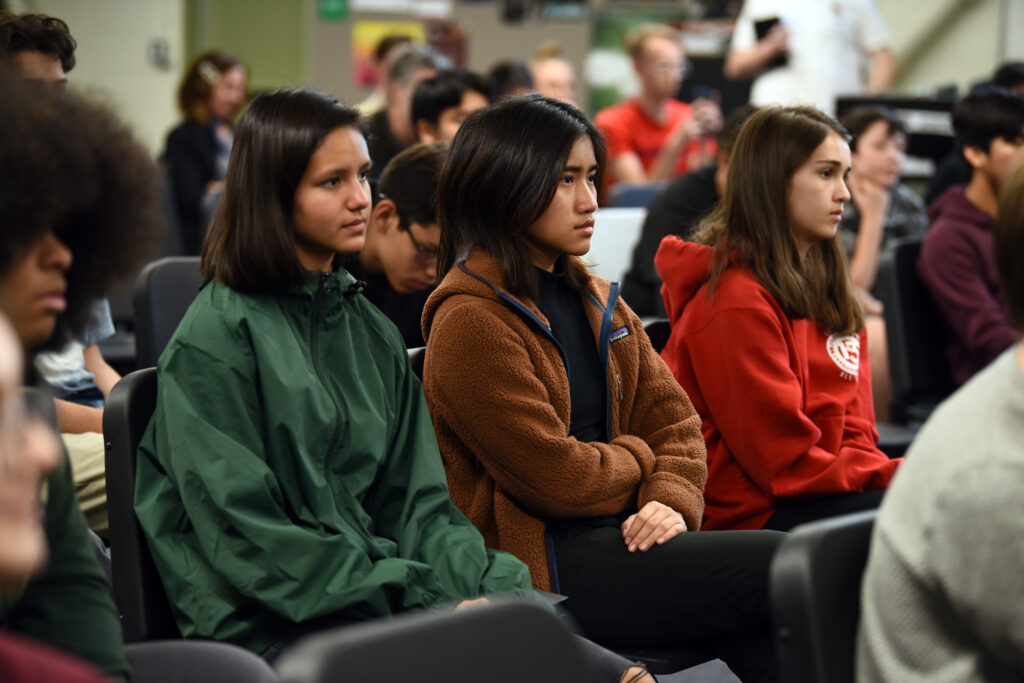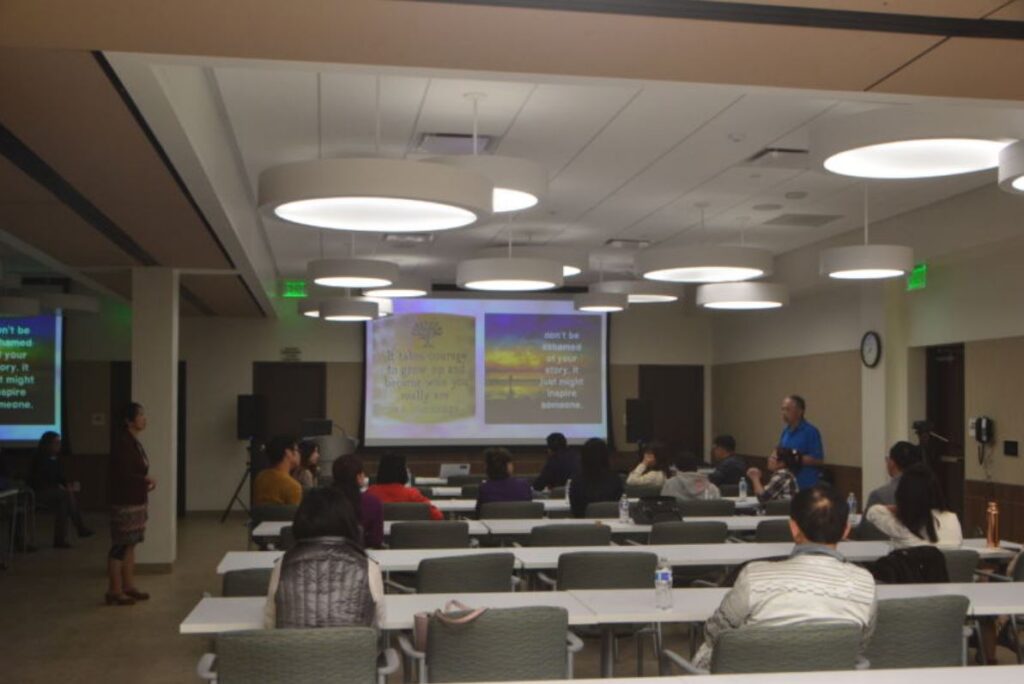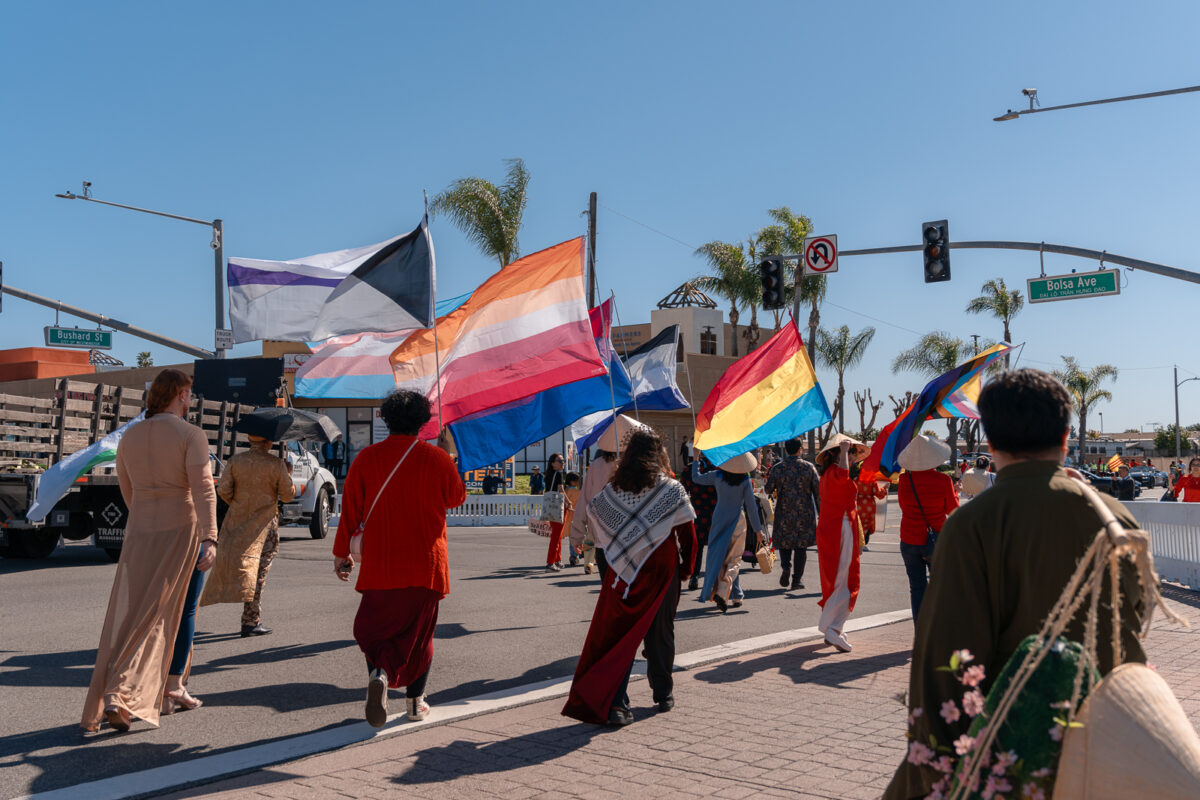Thien Le | Nguoi Viet Daily News
LITTLE SAIGON, CA – As hate incidents rise nationwide, so does LGBTQ bullying. But in Little Saigon, this is a problem that few people pay acknowledge.
Little Saigon, located in Orange County in Southern California — home to more Vietnamese people than anywhere else in the country— has about 200,000 people of Vietnamese origin living in two main cities, Westminster and Garden Grove.
This community also expands to a number of other neighboring cities, like Fountain Valley and Santa Ana.
Although, in many schools in the area, the majority of students are Vietnamese, many parents say they don’t hear about about bullying incidents in school or on the news.
However, bullying in schools is on the rise in the United States, and cities throughout Orange County are seeing hate incidents in middle and high schools.
In 2022, up to 50 incidents occurred in local high schools; 32 incidents in middle schools; and six incidents in elementary schools, according to an Orange County hate report released in September 2023.
Some Little Saigon parents read the report and, while apprehensive, said they had never heard of bullying happening at their children’s school.
Firsthand perspectives
Nguyen Thanh Chi, a resident of Westminster, said “My son goes to school at Westminster High School, he is in Grade 11, but I have not heard anything happening in the past few years. I know that hate against Asians is on the rise, but here we’re all Vietnamese people, so there’s no one to hate each other.”
“When he goes to school, he also meets Vietnamese friends, then there are Mexican students and white students in the school, and I see most of them are Vietnamese, so I have never heard of bullying happening,” Chi continued.
“I think it’s us Vietnamese that bullies other people, not the other way around,” he added jokingly.
He said he had never heard his son or any other parent talk about LGBTQ people being bullied in school, and did not know about that situation.

Mrs. Trinh Nguyen, a resident of Garden Grove who has a daughter who goes to Garden Grove High School, said “If Vietnamese people may be dissatisfied with the orientation of their children, that is a matter kept to the family. Socially speaking, everyone respects each other.”
However, LGBTQ students in Orange County, the Vietnamese capital of the United States, also face many difficulties with bullying and harassment in school.
Linda Trinh Vo, a professor at the Asian American Studies Department at UC Irvine, had an LGBTQ student who faced many difficulties in school because of her sexual orientation.
That person is Caitlin, a resident of Garden Grove. She shared that she was harassed from elementary school to high school.
She said that she is a lesbian who began being aware of her orientation in first grade, but did not know anything about gay people and did not learn about those feelings until fourth grade because she was taught that women have to pair with men.
“I watched a show and saw a female character facing many difficulties because of her sexual orientation, and seeing her being accepted by many of her peers helped me understand more about myself,” Caitlin said.
After that, she only told her friends about her sexual orientation, and was accepted by her friends in middle and high school.
However, until now, she has not told her family because of her conservative and religious views, along with many of their other thoughts about the LGBTQ community.
In her family, she only told her cousins because they were the same age, and they welcomed Caitlin, offering her support throughout the difficulties she faced.
She was bullied and harassed in fifth grade, by her best friend at the time. That female student told many other students that Caitlin was a lesbian, then made new friends to avoid her and often said bad things about her.
After that, Caitlin had to meet with school counselors to ask for help, but did not dare say she was being bullied for her orientation.
When she entered seventh grade, she developed feelings for another girl, and the two were close friends until Caitlin felt comfortable revealing that she was gay.
That student then cut off all contact with Caitlin on social media, shared the situation with many other students, and ridiculed her when the two clashed about the issue.
Caitlin overcame that trouble with the help of her friends and a teacher she called “Mr. Phan,” who reassured her that her orientation did not change anything about herself.
That help was the first time Caitlin felt like she had an adult oh her side, because for many years she had only known adults in the Little Saigon community to be conservative and impose religious-based discrimination on the LGBTQ community.
She also saw harassment of other LGBTQ students at school, like disparaging words and crumpling leaflets posted by pro-LGBTQ activist groups.
Caitlin said the Little Saigon community should talk more about the fact that LGBTQ people are not treated fairly, often encountering criticism of their orientation or “otherness.”

Protecting LGBTQ students
Little Saigon has a number of community organizations that help LGBTQ people, including Viet Rainbow of Orange County (VROC), which promotes discussion of LGBTQ discrimination in communities through education, protecting civil rights and building social solidarity through dialogue with friends and family.
According to a 2021 survey by VROC, many Vietnamese LGBTQ young adults in Orange County have identified as members of that community since childhood, and say health problems are a danger .
According to that survey, one of the problems that Vietnamese LGBTQ young adults face even long after the bullying is health care — particularly insurance companies that are not able to provide gender-appropriate care without discrimination, especially for transgender people.
James Huynh, a former board member of VROC, said he and the organization were part of a marching group in the Tet Parade in Little Saigon in 2018, and some people in the audience shouted “Go away!” which made him feel scared and ashamed.
Nor is institutional LGBTQ discrimination a problem of the far past.
In 2013, the Vietnamese National Community of Southern California said LGBTQ is not part of Vietnamese culture, and did not allow a group of five LGBTQ people part of VROC to attend the Tet Parade that year. After many appeals and protests at Westminster City Council, VROC was given the right to participate.
The Trevor Project, the world’s largest organization dedicated to suicide prevention and mental health care for young LGBTQ people, released a 2022 report that found worrying trends in six Asian communities, including Vietnamese.
The report shows that 31% of LGBTQ youth of Vietnamese origin thought often about suicide and 14% attempted suicide in 2021.
Up to 41% of Asian LGBTQ youth said they couldn’t talk about their sexual orientation with at least one parent, while 60% of these youth were of Vietnamese origin, according to the report.
Although bullying and discrimination against Vietnamese LGBTQ youth in Orange County may not be as obvious as in other communities, it doesn’t mean that it’s less of a danger.
This resource is supported in whole or in part by funding provided by the State of California, administered by the California State Library in partnership with the California Department of Social Services and the California Commission on Asian and Pacific Islander American Affairs as part of the Stop the Hate program. To report a hate incident or hate crime and get support, go to CA vs Hate.





